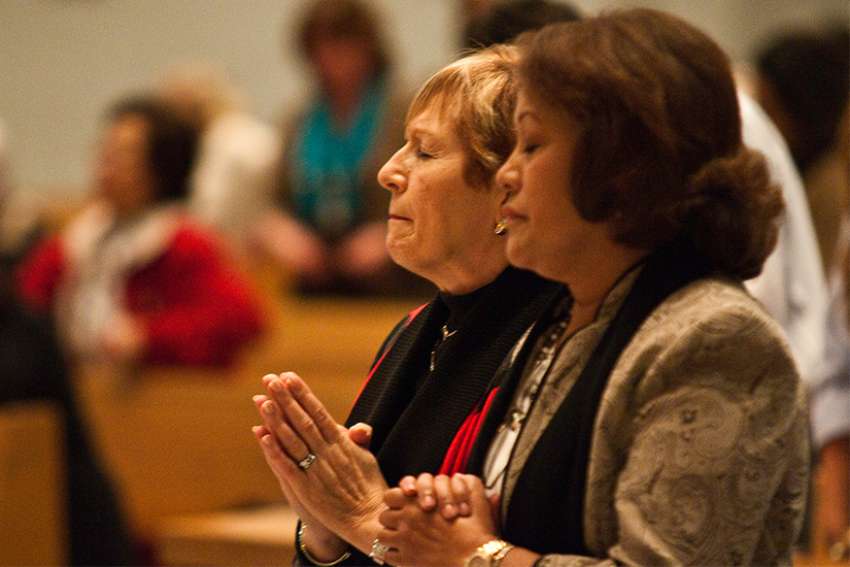The ninth annual Mass to End Woman Abuse on Oct. 18 won’t magically change that statistic, but it sends a message, said Catholic Family Services violence against women program manager Sherene McFarlane.
Talking about abuse in public and in church, praying for its victims and for healing, is the exact opposite of “messages that have been kind of ingrained,” McFarlane told The Catholic Register. Where women once learned that their experience of abuse was shameful, or at the very least private, the annual Mass represents the Church inviting an honest and public discussion.
“The message is being changed,” McFarlane said. “Women are getting the sense that they can speak up and they can get out of their abusive situations.”
It’s all very well for rich, powerful and famous movie stars to campaign publicly in the #MeToo movement, but #MeToo is a whole different proposition for the people Catholic Family Services typically serve, said McFarlane.
“We think about some of our immigrant women, who have experienced rape or domestic violence in their home country,” she said. “They’re coming here and they have no resources. They’re still linked with their husband who is still abusive. These are the stories that we hear on a regular basis.”
McFarlane admits that media attention on Bill Cosby’s conviction for drugging and raping a young woman, or the allegations against Hollywood mega-producer Harvey Weinstein, drives public discussion. But the connection between these personalities and the poor and working-class women who clean offices, care for other people’s children, wait tables and cook is difficult to see.
“If media talked about the everyday struggles that we see….” McFarlane leaves the rest of that sentence hanging. In meetings of Catholic Family Services staff, the social workers and support staff were skeptical about #MeToo’s benefit for their clients.
“It’s like, here comes another wave. It’s going to build this huge tidal wave and then it’s going to die. Then we’re still going to be here, holding.”
In many immigrant communities there’s a cost to speaking about abuse. “You’re going to bring backlash to yourself if you speak up,” McFarlane said. “There’s a differential in terms of socio-economic status.”
Whether it’s physical or verbal, so much of abuse is about the exercise of power, said Catholic Family Services of Toronto executive director Denis Costello.
“Abuse is often used by individuals from broken homes themselves, who fear that their partner will leave them,” Costello wrote in an email. “So, they seek power and control over the other by abuse — often verbal and emotional, and also by physical abuse.”
This year’s Mass to End Woman Abuse is co-sponsored by St. Edward the Confessor Catholic Church at 75 Churchill Ave., North York, where it will get underway at 7 p.m., followed by a reception co-hosted by the Catholic Women’s League and Knights of Columbus.
• Every six days a woman in Canada is killed by her husband, boyfriend or common-law partner.
• Every night about 3,500 women, accompanied by nearly 3,000 children, sleep in shelters for abused women. Another 300 are turned away on any given night.
• Aboriginal women are killed at six times the rate of non-Aboriginal women.
• Twenty-one per cent of abused women were assaulted during pregnancy.
• Coast-to-coast, violence against women results in over 40,000 arrests per year — about 12 per cent of all violent crime
(Sources: Canadian Women’s Foundation, Statistics Canada)


